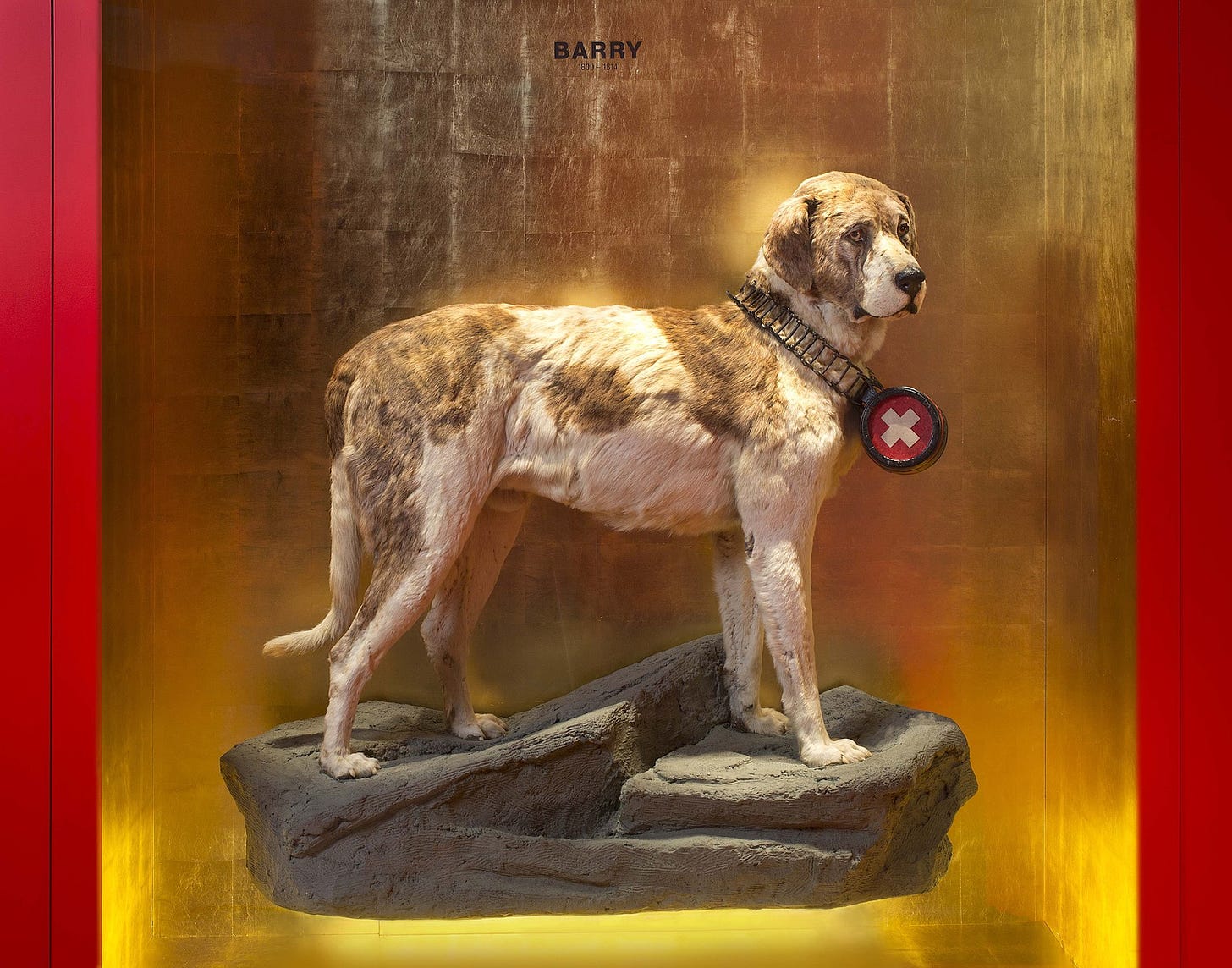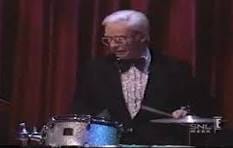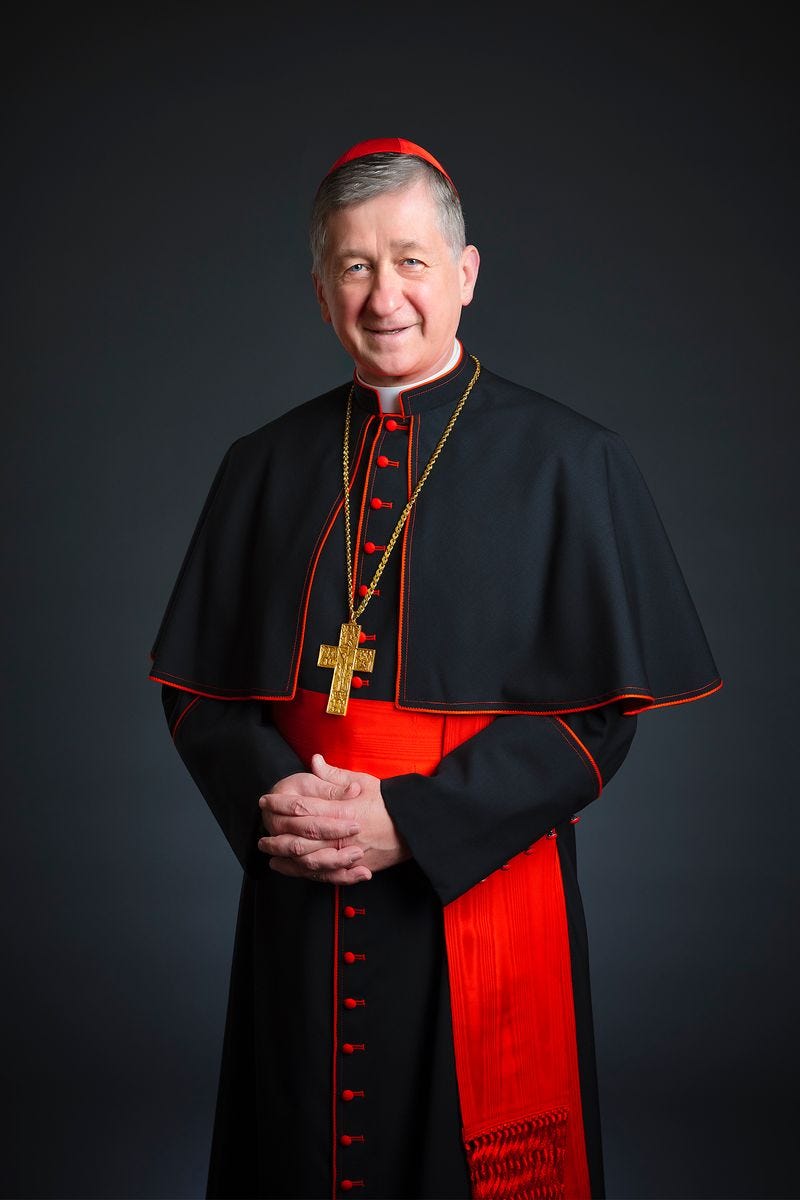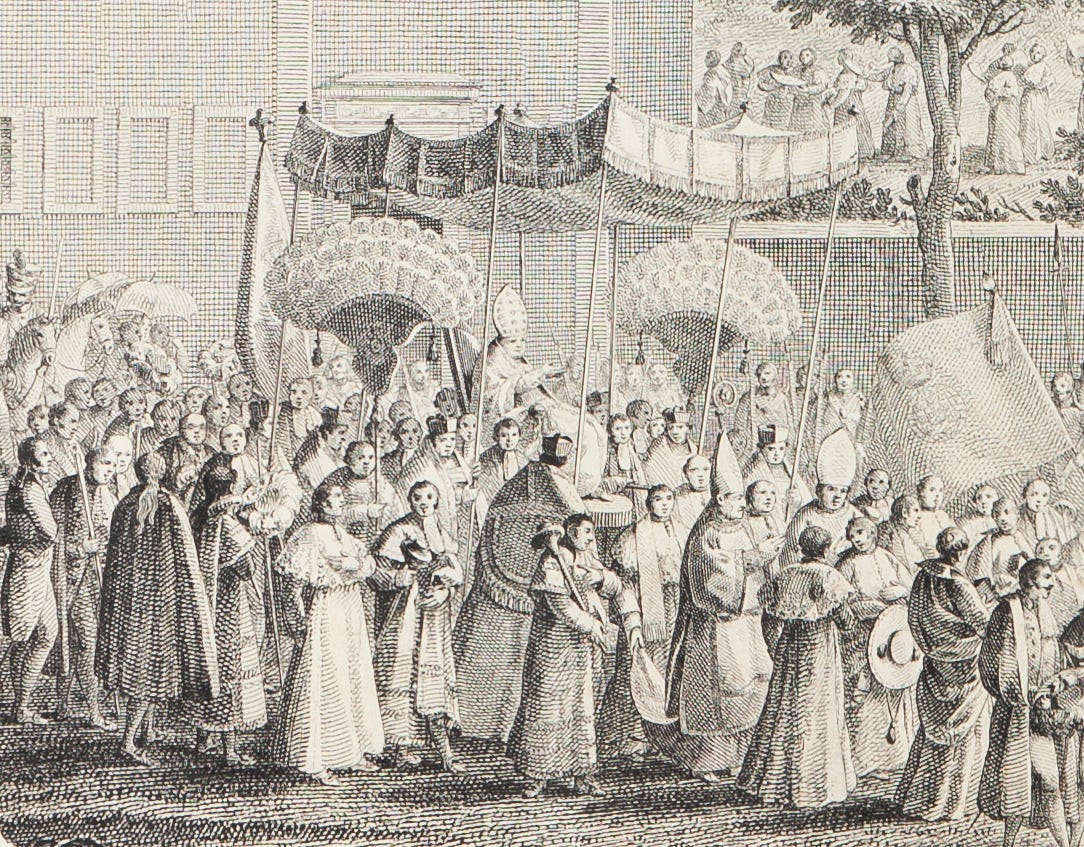'We as individuals,' the news, and Barry the great
Manage episode 435241505 series 3549307
Pillar subscribers can listen to JD read this Pillar Post here: The Pillar TL;DR
Hey everybody,
Today is the Feast of St. Bernard, and you’re reading The Tuesday Pillar Post. You’re reading it a bit late, and I apologize — I’m still getting into the swing of things after the health stuff my family’s been dealing with. Sorry.
The St. Bernard whom the Church celebrates today was the founder of a Cistercian monastery in Clairvaux, France, and a powerful preacher, who is remembered for sermons, letters, and theological texts that reflect a deep spiritual wisdom, centered on the depth of God’s love, and the transforming power of grace.
He was a big deal in 1100s — his own monastery grew in his lifetime to 700 monks, and he founded almost 70 other monasteries, in addition to advising popes, defending the Church, making peace between monarchs, and preaching against the persecution of Jews in Europe.
Bernard is the patron saint of beekeepers. This is not because he was known for keeping bees — the guy was extremely busy, as I just told you — but because his preaching was said to be as sweet as honey. A bit cloying, if you ask me, but there you have it.
But Bernard is not the patron saint of St. Bernards.
The big rescue dogs are actually connected to another Bernard — Bernard of Menthon.
In the 1050s, decades before Bernard of Clairvaux was born, Bernard of Menthon founded a little chapter of canons — clerics living in common — at a mountain pass in modern-day Switzerland. The canons had a guesthouse, which Bernard opened because he realized that lots of people traveling through the mountain pass were getting robbed by bandits.
The guesthouse, first named for St. Nicholas, but later renamed when Bernard of Menthon became a saint, is still open today, as the Great St. Bernard Hospice.
In the 1600s, the canons there bred a canine hearty enough to be a guard dog (remember, they founded the thing to protect travelers from robbers). Someone eventually named the dog for their holy founder.
But soon after the St. Bernard was bred, the canons realized its powerful body and hardy temperament made it suitable for rescue work — and since the clerics themselves weren’t crazy about traipsing through the snows looking for avalanche survivors, they put the dogs to work.
St. Bernards proved themselves great at rescue work. But while they’re usually depicted with a little barrel of brandy around their necks, that’s mostly a myth — except, apparently, for one dog called Barry, who in the early 1800s was famous among Swiss travelers, and is credited with saving more than 40 people who got lost in the snows.
Apparently Barry did sometimes did carry a little vial of liquor on his neck, with a special collar made for him by a canon.

The news
Speaking of Switzerland, one of the Catholic world’s most unusual episcopal selection processes is underway in the Swiss Diocese of St. Gallen, involving cathedral canons and a lay parliament, as well as the pope, of course.
See, inf the Diocese of St. Gallen, the cathedral canons have a right to vote on the new bishop of their diocese, from a pre-approved list vetted by the Vatican’s Dicastery for Bishops. But a lay group also has a role in the process, because it has the right to veto some of the candidates before the election.
In short, the whole thing is very interesting, very rare, and very Swiss. You can read about it here, and if you like arcana, procedural law, or Catholic trivia, you’ll thoroughly enjoy it.
Also, in case you’re wondering — I don’t know if there is much of a mafia in the Diocese of St. Gallen. But if there is, they don’t get a vote.
The situation has raised questions, prompted discussion, and prompted speculation about what exactly has happened, and what might happen next.
The priests themselves declined comment, as might be expected. But we at The Pillar talked with some people, and have an explainer, aimed at offering as much clarity as we can.
What happens when two priests have custody of a baby? Read about that here.
—
The Vatican’s agreement with Beijing, which sets protocol for the appointment of bishops and is meant to regularize the situation of the Catholic Church in China, is set to be renewed in the next few months.
But while the terms of that agreement seem to have been violated repeatedly by Chinese officials, Cardinal Matteo Zuppi, the pope’s “special envoy for peace” has been making towards overtures towards a relationship with China, outside the ordinary channels of diplomatic engagement.
That could mean new opportunities for China and the Holy See to get along — or it could mean a bit of chaos, and more unpredictability for Catholics living in China. So which one is it?
Ed Condon does some useful analysis. Read it here.
—
In Venezuela, a new apostolic nuncio presented his diplomatic paperwork last week to President Nicolás Maduro. That doesn’t sound like much of a story — except that Maduro is claiming victory in a recent election many observers believe he lost, and that’s led to protests, 24 deaths, and 2,400 arrests.
Because of all that, some people in Venezuela have read the nuncio’s meeting as an endorsement by the Holy See of Maduro, and they suggest it should have been delayed.
So what happened? Did the Holy See walk into a trap set by Maduro? Or did someone just fail to realize what a serious political problem the appointment might become?
The Pillar’s Edgar Beltrán breaks it down.
We individuals
With Planned Parenthood’s abortion-and-hot-dog-truck parked nearby, Cardinal Blase Cupich last night offered the invocation at the opening session of the Democratic National Convention.
Since the cardinal’s prayer, much has been made online of the fact that he did not pray in the name of Jesus, or make mention of Jesus Christ at any point during the 356 words of his address.
I understand that criticism, though I don’t especially share it.
Cardinal Cupich prayed to the “God of all creation” at an inter-religious gathering. Since I presume he believes the Blessed Trinity is indeed the God of all Creation, I understand why he might have spoken in a way that allowed people from other monotheistic religions to join with him in prayer.
I note that Archbishop Jerome Listecki did pray in the name of Jesus Christ when he gave an invocation at the Republican National Convention last month, but I don’t regard Cupich’s omission as necessarily offensive to Christians.
Some critics also noted that while Fr. James Martin prayed explicitly for the unborn when he offered a prayer at the 2020 DNC, Cardinal Cupich made no such petition. That is a fair criticism, and, probably for the first time, some Catholics have rightly wondered why Cupich wasn’t willing to follow the laudatory example of Fr. Martin on that front.
After the cardinal prayed, a few friends texted me with a different critical observation — a sartorial one, at that. These friends wondered why Cardinal Cupich chose to come onstage in a somewhat ill-fitting clerical suit, rather than the cassock and biretta which might have given his presence, and thus his words, more gravitas among the attendees.
The cardinal does have a cassock, they pointed out, and this would have been the time to wear it.
I agree with that criticism, and I’d take it even a step further.
Why would any cardinal of the Catholic Church choose to appear for prayer in a business suit, looking like a well-mannered midwestern Lutheran minister, when he could instead observe the traditions of the Church, and don the awesome and appropriate formal garment, the ferriolo?
The ferriolo is awesome, because all capes are awesome, and few people have occasion to wear them with a straight face. Bishops do, it’s one of the few perks of a very hard job, and they shouldn’t ignore that option lightly.
For that matter, did the cardinal not consider what an impression he might have made — and thus, how much his prayer might have resonated in the hearts of attendees — if he’d been willing to don scarlet episcopal gloves, and to arrive sede gestoria?
That, I promise you, would have knocked Planned Parenthood’s publicity stunt right out of the headlines. Fight spectacle with pageantry, Your Eminence, whenever you have the chance.
But those criticisms aside, I do have a substantive observation about the cardinal’s invocation, because there was a part of his prayer which rather surprised me.
“May we as individual Americans,” Cupich prayed, “become more fully the instruments of God’s peace.”
That is, in some senses, a very American prayer. Not so much because of the emphasis on peace, but because of its emphasis on individuality. The cardinal didn’t pray that we might come together to accomplish some great thing, or that we might better recognize that the bonds of interdependence actually foster peace.
Instead, he prayed that each of us individuals might accomplish God’s plan.
That was a missed opportunity for a Catholic, to be sure. Because Catholic Americans know that, while there are many great things about our country, the cult of radical individualism can be a crippling flaw. The primacy of the individual, and his potential, and his inexhaustible liberty, runs through our national consciousness, and through our mythology, in a way that runs counter to the Catholic sense of being incorporated into a body, and of working for the common good.
Radical individualism separates us from the traditions of our fathers and the needs of our brethren, placing a silly primacy on our right to choose, without reference to good things that we ought to choose. Radical individualism reduces freedom to choice, and liberty to license. It suggests that the wisdom of the past pales in comparison to the ingenuity of the self. It promises a prosperity of self-advancement, self-actualization, and self-indulgence, with little understanding that flourishing comes from connection, not unfettered accomplishment.
I’m not sure that Cupich was all that intentional in his choice to emphasize the prospect of an individual’s accomplishment of God’s peace, over-and-against that which might be achieved by a people united.
But it struck me as a missed opportunity to offer the most uniquely Catholic contribution to the American political landscape: the sense that we are most fully human when we are united, and animated, by the bonds of love — love for the wisdom of our fathers, the welfare of our brethren, and the dignity of our children.
Anyway, maybe eschewing the ferriolo does say something, after all.
Thank you, again, for your prayers for my son Max. He is home from the hospital, recovering well, and even made a half a day of school yesterday.
Please be assured of our prayers, and please pray for us. We need it.
Yours in Christ,
JD Flynn
editor-in-chief
The Pillar
8 episodes








